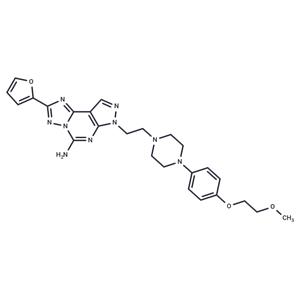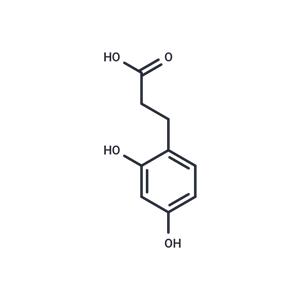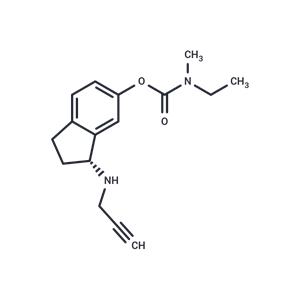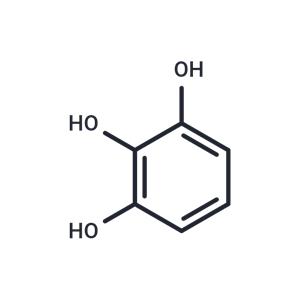
Preladenant NEW
| Price | $34 | $48 | $77 |
| Package | 1mg | 2mg | 5mg |
| Min. Order: | |
| Supply Ability: | 10g |
| Update Time: | 2024-11-19 |
Product Details
| Product Name: Preladenant | CAS No.: 377727-87-2 |
| Purity: 98.18% | Supply Ability: 10g |
| Release date: 2024/11/19 |
Product Introduction
Bioactivity
| Name | Preladenant |
| Description | Preladenant (SCH-420814) is an orally bioavailable antagonist of the adenosine A2A receptor (Ki: 1.1 nM) and has >1000-fold selectivity over all other adenosine receptors. |
| Cell Research | Preladenant is dissolved in DMSO and stored, and then diluted with appropriate media before use[1].HEK 293 cells stably expressing either human A2A or A2B receptors are grown to confluence, harvested using enzyme-free cell dissociation buffer and pelleted by centrifugation (1000 g; 5 min). The cells are washed and diluted to a final density of 4×106 cells/mL in Hanks' balanced salt solution supplemented with 10 nM HPS, pH 7.4, 5 mM MgCl2, and 0.2% bovine serum albumin. Preladenant is diluted in the above buffer with the inclusion of the following components to achieve the respective final assay concentrations: 0.25% DMSO, 2 U/mL adenosine deaminase, and 100 μM Ro 201724. Cell suspensions (20 μL) are preincubated for 15 min at room temperature in 96-well plates containing 25 μL of vehicle or Preladenant. CGS-21680 (A2A) or 5-N-cyclopropylcarboxamidoadenosine (A2B) at 10-fold the desired concentration is then added, and the reactions are incubated for 15 min at 37°C. The reactions are terminated by the addition of 50 μL of assay/lysis buffer. |
| Kinase Assay | Receptor binding is performed using membranes prepared from cells with recombinant expression of adenosine receptors as follows: human A2A and HEK 293, rat A2A and Chinese hamster ovary, human and rat A1 and Chinese hamster ovary, and human A3 and HEK 293. Radioligand competition binding assays are performed in 96-well plates in a total assay volume of 200 μL using a final test drug concentration range of between 0.1 and 3 μM. Membranes are diluted in assay buffer, pH 7.4 (A1 and A2A, Dulbecco's phosphate-buffered saline with 10 mM MgCl2; A3, 50 mM Tris-HCl, 120 mM NaCl, 10 mM MgCl2). To remove endogenous adenosine from the membrane preparations, 4 U/mL adenosine deaminase is added to the membranes, which are then incubated at room temperature for 15 min. Radioligand is added to a final concentration of 0.5 ([3H]SCH 58261, A2A), 1 ([3H]DPCPX, A1), or 0.25 ([125I]AB-MECA, A3) nM. Nonspecific binding is defined by adding 100 nM CGS 15923 (A2A), 100 nM NECA (A1), or 100 nM DPCPX (A3). Plates are incubated at room temperature with agitation for 1.5 h (A2A and A1) or 2 h (A3). Membranes are filtered onto Packard GF-B filter plates and washed in ice-cold assay buffer using a Brandel cell harvester to separate bound and free radioligand. The plates are dried before addition of 45 μL of Microscint 20 to each well. |
| Animal Research | Preladenant is prepared in 50% polyethylene glycol 400 (Rats and Mice).Preladenant is dissolved in cyclodextrin, sonicated and administered p.o. for the study (Monkey).Male CD rats and male CD1 mice are used. Preladenant is administered orally in 50% polyethylene glycol 400 at a dose volume of 3 to 5 mL/kg. In the forced swim test (FST), mice are placed individually into glass cylinders filled to a depth of 10 cm with water (25°C) and left for 6 min. A mouse is judged to be immobile when it floats in an upright position and made only small movements to keep its head above water. The duration of immobility is recorded during the last 4 min of the 6-min testing period by an observer blind to the treatment of the animals. Animals are dosed with vehicle, Preladenant, or SCH 412348 1 h before behavioral testing. Each rat is placed individually in a cylinder of water (25°C) and left to swim for 15 min before being removed and dried in a heated enclosure and returned its home cage. Twenty-four hours later (test day), the animal is re-exposed to the conditions, and the total immobility time during a 5-min period is recorded. In addition, the duration of time that the rats spent climbing the sides of the cylinder is recorded. On test day, each animal is dosed with Preladenant, SCH 412348, or vehicle 1 h before behavioral testing. Six female cynomolgus (Macaca fascicularis) monkeys (weighing 3.5-4.2 kg) are used. The animals are rendered parkinsonian by subcutaneous (sc) administrations of MPTP (2-3 mg/kg) once per week until a stable parkinsonian syndrome (unchanged disability score of 8 or greater for at least a month) developed as measured by a parkinsonian disability scale. At least 2 months after the final administration of MPTP, the monkeys are treated chronically with Prolopa (L-Dopa/benserazide, 100/25 mg) until clear and reproducible dyskinesias developed. The present experiment with L-Dopa and Preladenant (1 mg/kg and 3 mg/kg, p.o.) is performed in these monkeys. |
| In vitro | In cells expressing the recombinant human A2A receptor, Preladenant completely antagonizes cAMP. The KB values of Preladenant is 1.3 nM at the A2A receptor. A similar functional assay with A2B receptor-expressing cells is used to demonstrate selectivity over A2B receptors. In this assay, the KB value for Preladenant is 1.2 μM and this selectivity for the A2A receptor is 923-fold over the A2B receptor. |
| In vivo | Preladenant (1 mg/kg) inhibits L-Dopa-induced behavioral sensitization and exhibits antidepressant-like profiles in the mouse tail suspension and mouse and rat forced swim tests. It dose-dependently reduces parkinsonian scores, achieving minimum scores of 9.0 at 1 mg/kg and 6.5 at 3 mg/kg. A subthreshold dose of Preladenant lowers minimum and mean parkinsonian scores in animals treated with 3 mg/kg of L-Dopa to 5.25 and 6.88, respectively. A Wilcoxin test shows significant improvements in minimum parkinsonian scores with Preladenant (3 mg/kg), L-Dopa (3, 6, and 12 mg/kg), and Preladenant plus L-Dopa (1 or 3 mg/kg + 3 mg/kg). Additionally, both the 12 mg/kg L-Dopa and L-Dopa + Preladenant groups significantly improve minimal and mean parkinsonian scores, comparable to the 3 mg/kg L-Dopa group. |
| Storage | Powder: -20°C for 3 years | In solvent: -80°C for 1 year | Shipping with blue ice. |
| Solubility Information | H2O : < 0.1 mg/mL (insoluble) DMSO : <1 mg/mL (insoluble or slightly soluble), Sonication is recommended. |
| Keywords | SCH 420814 | Inhibitor | inhibit | Adenosine Receptor | Preladenant | SCH420814 | P1 receptor |
| Inhibitors Related | Theobromine | Theophylline | Doxofylline |
| Related Compound Libraries | Anti-Neurodegenerative Disease Compound Library | Bioactive Compound Library | Membrane Protein-targeted Compound Library | Inhibitor Library | Anti-Cancer Active Compound Library | Anti-Cancer Drug Library |
Company Profile Introduction
Target Molecule Corp. (TargetMol) is a global high-tech enterprise, headquartered in Boston, MA, specializing in chemical and biological research product and service to meet the research needs of global customers.
TargetMol has evolved into one of the biggest global compound library and small molecule suppliers and a customer based on 40+ countries. TargetMol offers over 80 types of compound libraries and a wide range of high-quality research chemicals including inhibitors, activator, natural compounds, peptides, inhibitory antibodies, and novel life-science kits, for laboratory and scientific use. Besides, virtual screening service is also available for customers who would like to conduct the computer-aided drug discovery.
You may like
Recommended supplier
| Product name | Price | Suppliers | Update time | |
|---|---|---|---|---|
| $15.00/1KG |
Zhuozhou Wenxi import and Export Co., Ltd
|
2021-07-10 | ||
| $15.00/1KG |
Zhuozhou Wenxi import and Export Co., Ltd
|
2021-07-08 |
- Since: 2011-01-07
- Address: 36?Washington?Street, Wellesley?Hills
INQUIRY







 United States
United States